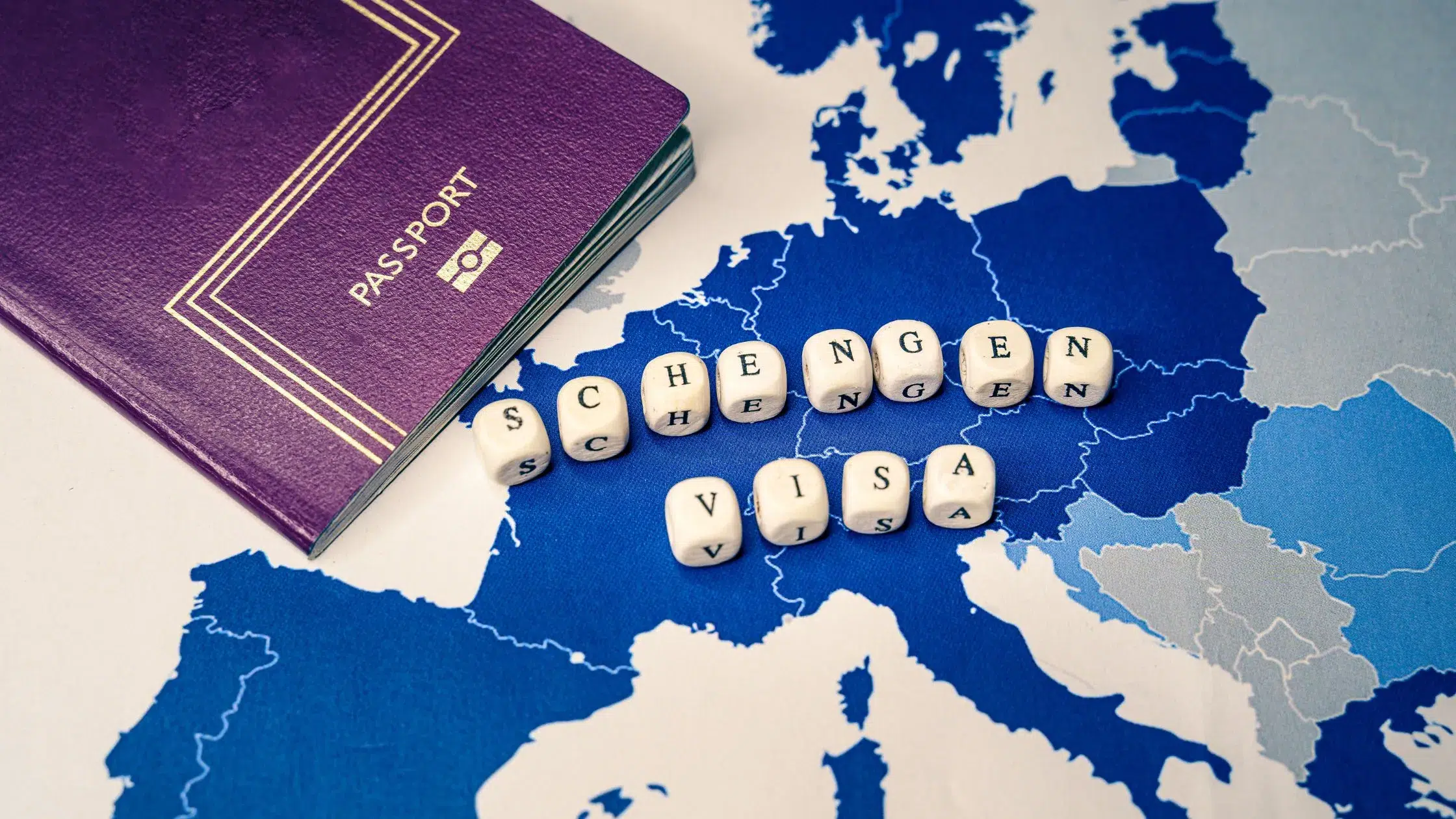Travel Insurance for Schengen Visa from India
Travel Insurance for Schengen Visa from India
Planning a trip to Europe? If you’re setting your sights on Schengen countries, travel insurance becomes a vital part of the process. This guide will explain everything you need to know about Schengen travel insurance for Indian citizens, making your visa application and European adventure smooth sailing.
What is Schengen Travel Insurance?
Schengen travel insurance is a specific type of insurance designed to protect you financially during your trip to the Schengen Area. The Schengen Area is a group of 26 European countries that allow travelers to move freely between them without border checks.
Things to Know About Schengen Travel Insurance
- Mandatory for Visa Application: Schengen countries require all visa applicants to have travel insurance with a minimum coverage of €30,000 (Euros).
- Peace of Mind: Travel insurance safeguards you against unexpected expenses arising from medical emergencies, trip cancellations, lost luggage, and more.
- Tailored Options: Several insurance companies in India offer Schengen travel insurance plans. You can choose a plan that best suits your travel duration, activities, and budget.
What are the Requirements of Schengen Visa Insurance?
Your Schengen travel insurance must meet the following criteria:
- Minimum Coverage: €30,000 for medical expenses, including hospitalization, emergency medical evacuation, and repatriation.
- Valid Throughout Your Trip: The insurance should cover the entire duration of your stay in the Schengen Area.
- Territorial Coverage: The policy must be valid across all Schengen countries.
- Policy Wording: Ensure the wording clearly states it meets Schengen visa requirements.
Why Do You Need Schengen Travel Insurance from India?
Travel insurance offers several advantages for Indian travelers:
- Financial Security: Medical care in Europe can be expensive. Insurance covers medical emergencies, preventing hefty bills from derailing your trip.
- Trip Disruptions: Unexpected events like flight cancellations or lost passports can throw your travel plans into disarray. Travel insurance helps reimburse associated costs.
- Peace of Mind: Knowing you’re financially protected allows you to relax and enjoy your European adventure without worry.
Benefits Of Schengen Travel Insurance
Here are some common benefits offered by Schengen travel insurance plans:
- Medical Expenses: Covers hospitalization costs, doctor consultations, medicines, and emergency medical evacuation.
- Trip Cancellation/Interruption: Reimburses non-refundable trip expenses if you have to cancel or cut your trip short due to unforeseen circumstances.
- Loss of Baggage/Personal Belongings: Provides compensation for lost, stolen, or damaged luggage and personal belongings.
- Personal Liability: Covers your legal liability for any accidental property damage or injury caused to others during your trip.
- Travel Delays: Reimburses additional expenses incurred due to flight delays or missed connections.
Which Are The Schengen Countries?
Currently, there are 26 countries in the Schengen Area:
- Austria
- Estonia
- Lithuania
- Belgium
- Finland
- Luxembourg
- Czech Republic
- France
- Malta
- Denmark
- Germany
- Netherlands
- Greece
- Hungary
- Poland
- Iceland
- Italy
- Portugal
- Latvia
- Liechtenstein
- Slovakia
- Slovenia
- Spain
- Sweden
- Switzerland
- Norway (associated)
How to apply for a Schengen Visa from India?
The process for applying for a Schengen visa from India involves:
- Choosing the Embassy/Consulate: Apply at the embassy or consulate representing the country you plan to spend the most time in.
- Filling the Application Form: Fill out the online or paper application form accurately and completely.
- Collecting Documents: Gather required documents like passport, visa application fee receipt, travel itinerary, proof of accommodation, proof of financial means, and travel insurance documents.
- Biometric Enrollment: Visit the embassy or consulate for fingerprint scans and a photograph.
- Interview (Optional): In some cases, you may be called for an interview.
Tip: Contact the relevant embassy or consulate for specific visa application requirements and timelines.
Types Of Schengen Visas
There are different types of Schengen visas depending on your purpose of travel:
- Short-Stay Visa (up to 90 days): Ideal for tourism, business trips, or visiting family/friends.
- Long-Stay Visa (over 90 days): Required for extended stays for work, study, or research purposes.
- Airport Transit Visa: Needed if you have a connecting flight through a Schengen country.
Documents Required For A Schengen Visa (Continued)
The exact documents required for a Schengen visa application may vary depending on the embassy/consulate and your purpose of travel. However, some general documents are typically required by most Schengen countries:
- Completed visa application form: Filled out accurately and completely.
- Valid passport: Valid for at least 3 months beyond your intended stay in the Schengen Area, with at least two blank pages for visa stamps.
- Two recent passport-sized photographs: As per the specified requirements (size, background color, etc.).
- Proof of travel medical insurance: Policy document showing minimum coverage of €30,000 for medical expenses, valid for your entire stay.
- Proof of accommodation: Hotel reservations, hostel bookings, or a letter of invitation from a host if staying with someone.
- Proof of financial means: Bank statements, travel tickets (if purchased), or a sponsor’s letter demonstrating sufficient funds to support your stay (amounts can vary depending on the country).
- Proof of onward/return travel: Flight tickets or other documentation confirming your departure from the Schengen Area.
- Employment proof: Letter from your employer mentioning your position, salary, and leave of absence (if applicable).
- For students: Proof of enrollment and a letter from your educational institution.
- For self-employed individuals: Business registration documents and proof of income.
Tip: Double-check the specific requirements for your chosen Schengen country well in advance to ensure you have all the necessary documentation. Also consider your insurance agency for accuracy!
What Is Schengen Visa Procedure?
The Schengen visa application procedure typically involves these steps:
- Preparation: Research the visa type you need, gather required documents, and choose your travel insurance plan.
- Application Submission: Submit your application form and documents to the relevant embassy or consulate.
- Processing: The embassy/consulate will review your application and may request additional documents or an interview.
- Visa Decision: You will be notified of the visa decision within the processing timeframe.
- Visa Collection: Upon approval, collect your visa from the embassy or consulate.
Processing times can vary, so plan well in advance of your trip.
Best Time To Visit Schengen Countries
The ideal time to visit Schengen countries depends on your preferences:
- Spring (March-May): Pleasant weather, fewer crowds (except Easter holidays).
- Summer (June-August): Warmest weather, peak tourist season, higher prices.
- Autumn (September-November): Comfortable temperatures, beautiful fall foliage, shoulder season with good deals.
- Winter (December-February): Festive atmosphere in Christmas markets, possibility of snow sports, lowest tourist numbers.
Consider factors like weather, crowds, and costs when choosing your travel dates.
Things To Do In Schengen Countries
With 26 countries, the Schengen Area offers a diverse range of experiences:
- Explore Historic Cities: Immerse yourself in the rich history and architecture of cities like Rome, Paris, Prague, or Vienna.
- Relax on Breathtaking Coastlines: Enjoy the stunning beaches of Greece, Spain, Portugal, or Croatia.
- Indulge in Culinary Delights: Sample the delicious cuisines of Italy, France, Spain, or Germany.
- Experience Vibrant Culture: Witness art, music, and traditions unique to each Schengen country.
- Embrace Outdoor Activities: Hike in the Swiss Alps, bike through the Netherlands, or ski in the French mountains.
Plan your itinerary based on your interests and desired experiences.
What Does The Schengen Travel Insurance Policy Cover?
Schengen travel insurance policies typically cover a range of situations:
- Medical Expenses: Covers costs associated with hospitalization, doctor visits, medication, and ambulance services due to illness or accident during your trip.
- Trip Cancellation/Interruption: Reimburses non-refundable trip expenses if you have to cancel or shorten your trip due to covered reasons such as illness, natural disasters, or political unrest.
- Loss of Baggage/Personal Belongings: Provides compensation for lost, stolen, or damaged luggage and personal items within specified limits.
- Personal Liability: Covers your legal liability for accidental property damage or injury caused to others during your trip, up to a certain amount.
- Travel Delays: Reimburses additional expenses incurred due to flight delays or missed connections, depending on the policy coverage.
- Repatriation: Covers the cost of transporting you back to your home country for medical reasons or in case of death.
Always carefully review your specific policy wording to understand the exact coverage details and exclusions.
What Does The Schengen Travel Insurance Policy Not Cover?
While Schengen travel insurance offers substantial protection, it’s important to understand what it doesn’t cover:
- Pre-existing Medical Conditions: Most policies exclude coverage for medical expenses related to pre-existing conditions.
- High-Risk Activities: Extreme sports or activities deemed hazardous by the insurer may not be covered.
- Intentional Acts: Self-inflicted injuries or deliberate actions are typically excluded.
- Elective Treatments: Expenses related to non-emergency medical procedures are usually not covered.
- War & Civil Unrest: Losses arising from war, terrorism, or civil unrest may be excluded.
Carefully read the policy exclusions to avoid any surprises.
Money Saving Tips in Schengen Countries
Traveling on a budget is possible in Schengen countries with some smart planning:
- Accommodation: Consider hostels, guesthouses, or apartments as alternatives to expensive hotels.
- Transportation: Utilize public transportation passes or purchase discounted travel cards for cost-effective sightseeing.
- Food: Explore local cafes and street vendors for delicious and affordable meals.
- Discounts: Look for museum passes, student discounts, or free walking tours to save money on attractions.
- Off-Season Travel: Consider traveling during the shoulder seasons to avoid peak season prices.
By being a savvy traveler, you can experience the wonders of Europe without breaking the bank
How to choose Schengen Travel Visa Insurance for Europe?
- Compare Coverage: Review different plans and compare coverage details, exclusions, and limits of each policy.
- Look for plans that offer €30,000 minimum medical coverage, which is the mandatory requirement.
- Consider additional coverage options like trip cancellation/interruption for different reasons, baggage and personal belongings insurance with desired limits, and personal liability coverage with a suitable amount.
- Some plans might offer additional benefits like repatriation assistance, travel delay coverage, or coverage for specific activities.
- Consider Your Needs: Choose a plan that aligns with your trip duration, activities, and budget.
- If you’re planning an adventurous trip, consider a policy that covers high-risk activities.
- If you have any pre-existing medical conditions, see if there are plans offering limited coverage options or exclusions with waivers.
- Solo travelers may benefit from personal liability coverage with a higher limit.
- Read the Policy Wording: Don’t just rely on marketing materials. Carefully read the policy wording to understand the specifics of coverage, exclusions, claim procedures, and contact details.
- Price Comparison: Get quotes from several insurance companies and compare premiums while keeping coverage details in mind. Choosing the cheapest option might not be the best if it doesn’t provide adequate protection.
- Pre-existing Medical Conditions: If you have pre-existing medical conditions, disclose them clearly while purchasing the insurance. Non-disclosure can lead to claim rejection. See if the insurer offers any limited coverage options or exclusions with waivers.
- Claim Process: Familiarize yourself with the claim process outlined in the policy. Understand the documents required and how to initiate a claim in case of an emergency.
By following these tips, you can choose a Schengen travel insurance plan that offers the right balance of coverage and affordability for your European adventure. Remember, travel insurance is an investment in peace of mind, allowing you to relax and enjoy your trip knowing you’re financially protected against unforeseen circumstances.






